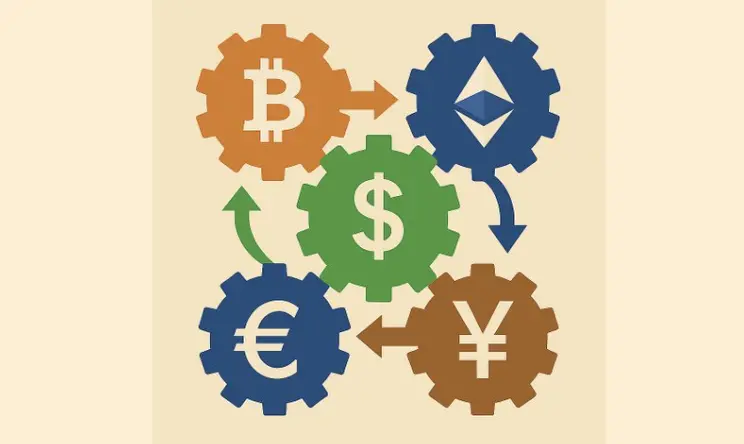Ethereum EIP-1559 Proposal Controversy: Opposition's Hashrate Exceeds 60%, Still Not the Optimal Solution
This article was first published on PANews, authored by Peter Pan.
Last year's rise of liquidity mining has promoted the vigorous development of the DeFi ecosystem on the Ethereum network. While the demand for financial services such as trading and lending has been increasing, it has also led to a significant surge in Ethereum Gas fees, resulting in increasing network congestion.
The EIP-1559 proposal put forward by Vitalik Buterin addresses the high Gas fees and network congestion faced by Ethereum users, but it infringes on the interests of miners, leading many mining pools to publicly express their opposition. Can the controversy surrounding EIP-1559 in the community be effectively resolved, and can Ethereum smoothly transition to version 2.0?
1. Mining Pools Take Sides, Divided Opinions
On February 26, three mining pools successively released statements indicating their positions on the Ethereum EIP-1559 proposal. The proposal to improve Ethereum's transaction fee mechanism, raised two years ago, has already attracted the attention of many Ethereum enthusiasts, and discussions about it have once again become fervent.
F2pool, the third-largest mining pool by total hash rate on the Ethereum network, published an article titled "Standing on the Right Side of History: EIP-1559," formally expressing support for the EIP-1559 proposal, making it the only mining pool to publicly support the proposal at this time.
In the article, F2pool emphasized that Ethereum has been in a high-growth mode for the past two years, with numerous ecosystem builders creating a large number of DeFi, DAO, NFT, and other ecological applications on Ethereum. On-chain data shows that the number of transactions on the Ethereum chain has exceeded the peak level of 2017. However, the significant increase in demand has led to a continuous rise in Gas fees on Ethereum, causing increasing network congestion. At times, users have spent high Gas fees only to have their transactions fail, resulting in a poor user experience.

EIP-1559 can effectively address this issue, and currently, key developers in the community (such as Vitalik Buterin), core contributors, and users have chosen to support EIP-1559. Historically, it is important to stand with them. Although Ethereum Classic (ETC) has continued to develop after the fork, its attractiveness in terms of usage and application has fallen far behind Ethereum.
Subsequently, Spark Pool and Bee Pool also expressed their positions, but they chose to oppose the EIP-1559 proposal. Spark Pool stated that this is a form of majority tyranny disguised as user experience, and that EIP-1559's choice to destroy Basefee represents a redistribution of wealth from miners to token holders, which they describe as "robbery." Bee Pool believes that alleviating transaction congestion and high fees can be addressed through dynamic expansion of Gas Limit, arguing that price is a complex factor that will not be boosted by a small amount of destruction.
Ethereum miners have always been the strongest opponents of EIP-1559, and most mining pools have repeatedly published articles opposing it. This is because it touches on their direct interests, making them the most affected group.
Flexpool, while publicly opposing the EIP-1559 proposal, has also established the STOPEIP1559 website to monitor the positions of various mining pools regarding the EIP-1559 proposal. The website shows that currently, 12 Ethereum mining pools have publicly opposed EIP-1559, with only F2pool openly supporting the proposal, while the remaining 7 are considered to be default supporters without public statements.

The reason that the remaining 7 pools are considered default supporters is that their lack of a public stance and inaction implies that they will peacefully accept the node updates sponsored by Ethereum developers, which include the EIP-1559 proposal and higher versions of ETH 2.0 updates. It is not difficult to find that most of the pools currently holding a supportive attitude also operate Bitcoin mining pools, while the opponents mainly focus on Ethereum mining pools. However, the hash rate of the opponents currently occupies the majority; according to Twitter users' statistics, the pools opposing EIP-1559 account for about 63% of the Ethereum network's hash rate.

2. Long-standing Network Congestion: Why EIP-1559 Sparks Controversy
The congestion problem of the Ethereum network has existed for a long time. As early as 2017, the popularity of CryptoKitties caused significant congestion on the Ethereum network, leading to soaring Gas fees. This time, the DeFi craze has similarly resulted in a surge in trading, lending, and other demands on Ethereum, causing Gas fees to rise sharply and set new records.
According to Gas Now data, this week the Gas Fee reached a peak of 1220 Gwei, setting a new historical high. The surge in Gas fees has greatly increased the income of Ethereum miners, providing them with the motivation to maintain the status quo and oppose EIP-1559. On February 23, The Block reported that Ethereum miners' income exceeded $1 billion in February this year, reaching a new high, with transaction fee income accounting for over half of miners' revenue at $541 million.
High Gas fees and a congested network have also restricted the development of other projects within the Ethereum ecosystem. Currently, some Ethereum users have quietly turned to other more fee-friendly public chains, providing numerous opportunities for exchanges. Since the beginning of this year, exchanges like Binance and Huobi have been building DeFi ecosystems on their own public chains, attracting many projects and users. Therefore, for the long-term development of the Ethereum ecosystem, improvements must be made, which is the significance of the EIP-1559 proposal.
EIP-1559 is a proposal to improve the Ethereum transaction fee mechanism jointly put forward by Vitalik Buterin and Eric Conner, the founder of Ethhub_io, in March 2019. The initial form of this proposal was suggested by Vitalik Buterin as early as 2018. Over the past two years, EIP-1559 has been one of the most prominent proposals in the community, but it has also sparked significant controversy. Currently, the coding phase of EIP-1559 is temporarily complete, and only block size testing remains, with implementation expected to begin this year.
The core of EIP-1559 is to change the way Gas fees are paid to miners. Currently, miners package transactions mainly by selecting those with higher Gas fee bids from the Mempool (transaction memory pool).
In the EIP-1559 proposal, Gas fees will be divided into two parts: Basefee and Tip. The Basefee is the minimum price that users must pay to have their transactions included in a block; however, the Basefee is not retained by miners but is instead destroyed.
If the Gas fees included in a block exceed the limit of 12.5M, the block will be adjusted based on actual usage demand, increasing the limit, with a final upper limit for Gas fees set at 25M. The Tip is an additional reward given to miners, and when Gas fees reach the final upper limit of 25M, miners will be sorted and packaged based on the amount of the Tip.
The EIP-1559 proposal adjusts the Gas fee rates based on actual usage demand, ensuring that block utilization remains at a half-full state and dynamically adjusting the upper limit of Gas fees to better handle short-term demand spikes, thus avoiding network congestion caused by high demand and improving user experience.
On the other hand, the destruction of the Basefee creates a deflationary mechanism that increases the value of each ETH but reduces the block rewards for Ethereum miners. The increase in deflationary earnings often cannot offset the rewards from miner fees, leading to a reduction in miners' overall earnings, which is the fundamental reason for the collective opposition of miners to the EIP-1559 proposal.
3. EIP-1559 is an Inevitable Trend, but Is It the Best Solution?
EIP-1559 is primarily led by Tim Beiko, a staunch supporter of the proposal. According to his assessment, from a technical perspective, there are still some challenges to be resolved before the launch of EIP-1559. However, the launch of EIP-1559 is an inevitable trend, potentially starting with the "London" hard fork in July this year.
Vitalik Buterin has stated in the community that the greater significance of EIP-1559 is to ensure that each transaction can be confirmed within 1-2 blocks. If some miners leave, new ones will come in; if miners conduct a 51% attack, then the transition to PoS should happen as soon as possible. Miners seem to be the sacrificed party; their main income currently comes from Ethereum users, and losing users means losing revenue. For users, miners are replaceable, and there will still be new miners on the Ethereum network that agrees to the EIP-1559 proposal.
Pan Zhibiao, the founder of CoinYin, stated that there is no need for miners to vote on EIP-1559. The proposal has caused a deflation in coin prices, sacrificing some of the miners' interests, but from a broader perspective, it maintains the long-term development of the community. He also believes that "EIP-1559 is a half-baked solution that does not solve the problem of network congestion; the roadmap has long made it clear that the ultimate goal is to transition to PoS and ETH2."
Another reason for the necessity of launching EIP-1559 is market expectations. F2pool believes that the current price of ETH likely already includes the value generated by the launch of EIP-1559. Most community members, including investors, are optimistic about the launch of EIP-1559 and hope that the proposal can be effective; this expectation has likely already been reflected in the price of ETH. If the proposal is not passed, it may negatively impact ETH's short-term price, and a decline in ETH's price could trigger a series of events that ultimately affect miners, as their income is determined by the price of ETH.
However, there is another viewpoint regarding the EIP-1559 proposal within the industry. Tim Roughgarden, a professor in the Computer Science Department at Columbia University, has conducted an in-depth analysis of EIP-1559, stating that without EIP-1559 or other transaction fee mechanisms, it is still possible to lower Ethereum's average transaction fees. The persistent high transaction fees are more of a scalability issue rather than a mechanism design issue. During periods of relatively stable demand, no matter which mechanism is adopted, it cannot be expected that actual transaction fees will be significantly lower than the market settlement price. If the market settlement price is already very high, the only way to lower the price is to increase supply or reduce demand.
In this regard, Vitalik Buterin shares the same opinion, stating that EIP-1559 is merely a temporary transitional solution that may alleviate the high Gas fee issue in the short term, but the real solution lies in improving Ethereum's scalability, which is the focus of ETH2.0.
As July approaches, the consideration to launch EIP-1559 during the "London" hard fork is also an important factor, as the "difficulty bomb" may occur at that time.
In the Ethereum network, mining difficulty is influenced not only by hash rate but also by the "difficulty bomb" mechanism. As block heights increase, the impact of the difficulty bomb on mining difficulty will become more pronounced, potentially growing exponentially in later stages until blocks can no longer be mined, causing the Ethereum network to come to a standstill. The setting of the difficulty bomb will facilitate a smoother transition for Ethereum from PoW to PoS.
The transition of Ethereum from PoW to PoS is also an inevitable process. The cryptocurrency world can hardly support the equivalent of two Bitcoin networks in terms of hash power, and Ethereum also needs to run more complex smart contracts, which require higher TPS.
By July, if the difficulty bomb erupts and Ethereum successfully transitions to PoS with ETH2.0 launched, then EIP-1559 will have fulfilled its mission. After that, the scalability issues within the Ethereum network, especially regarding Gas fees, will gradually be resolved.










